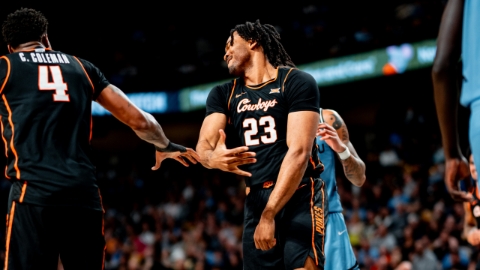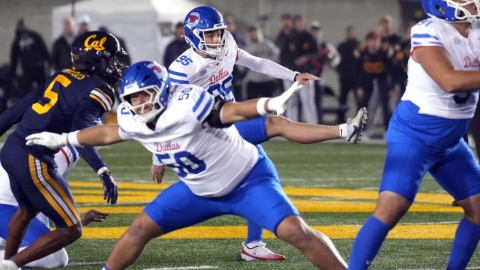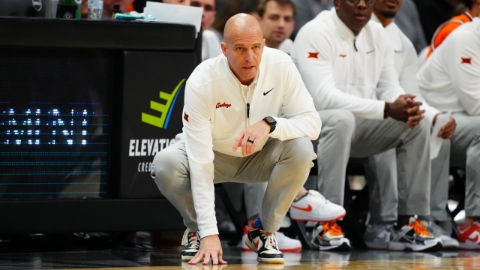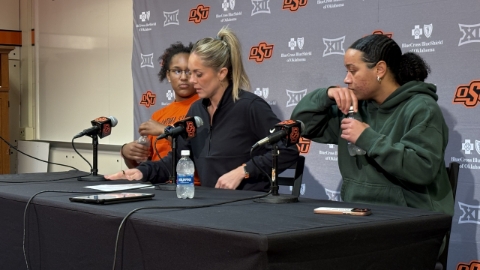New Members Still Being Added, Big 12 Reins in Ralphie and the Buffaloes
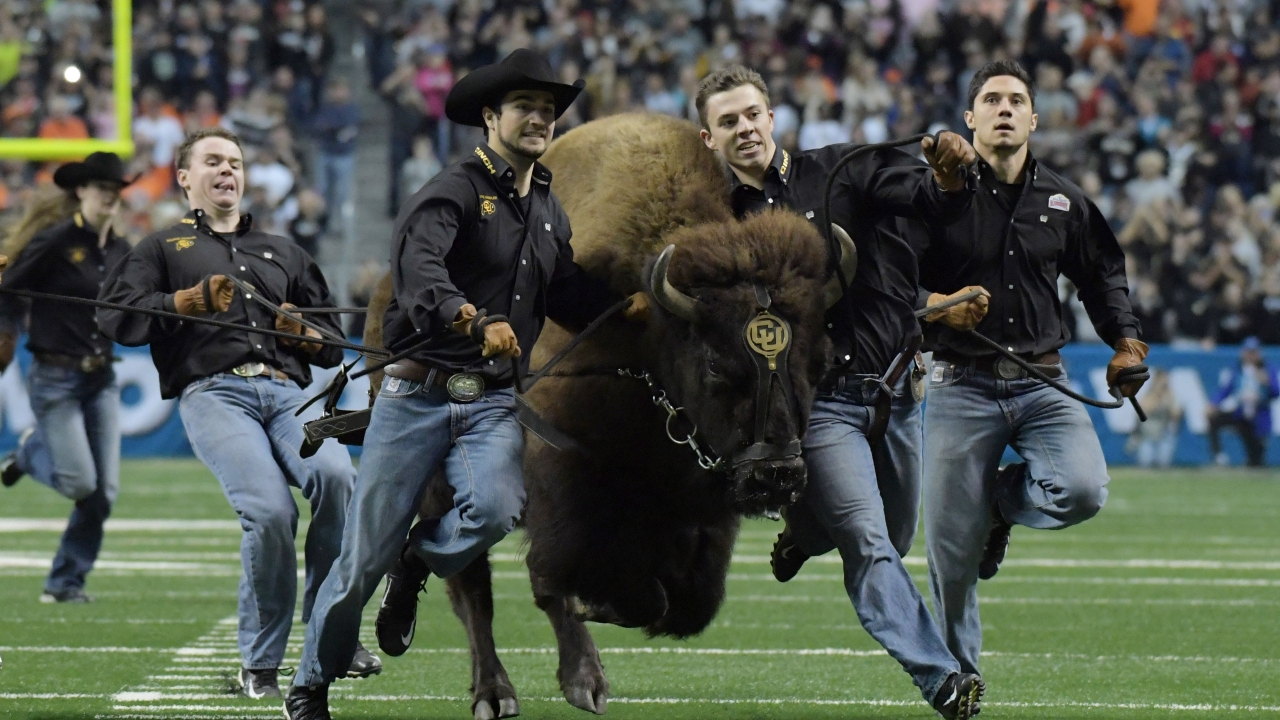
STILLWATER – The banners waving, flags flying, and fireworks going off over the official arrival of BYU, Cincinnati, Houston, and UCF have subsided some as the foursome are now official and have even attended a football media days event. Now, Big 12 Commissioner Brett Yormark has dropped the bomb he’s been working on for a while and the Pac-12 looks foolish after they preached solidarity at the Pac-12 Media Days. Former Big Eight and Big 12 member Colorado is coming back to the conference. The Buffaloes will officially join back with the Big 12 on July 1, 2024 and be a member in all sports starting in 2024-25.
The switch back was made official on July 27 at a public meeting of the University of Colroado Board of Regents and a unanimous approval of the resolution to (re) join the Big 12 Conference played out publicly.
“After careful thought and consideration, it was determined that a switch in conference would give CU Boulder the stability, resources, and exposure necessary for long-term future success in a college athletics environment that is constantly evolving,” Colorado Chancellor Philip DiStefano and Athletic Director Rick George expressed in a joint statement. “The Big 12's national reach across three time zones as well as our shared creative vision for the future we feel makes it an excellent fit for CU Boulder, our students, faculty, and alumni.
“These decisions are never easy and we've valued our 12 years as proud members of the Pac-12 Conference,” the joint statement continued. “We look forward to achieving new goals while embarking on this exciting next era as members of the Big 12 Conference.”
The Big 12 Conference and Yormark responded with a simple and clever statement: “They’re back.”
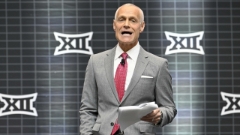
Truth be known, the school has been solidly contemplating the move going back into the last week of June. The announcement nearly came the first week of July, but officials on the Boulder campus took their time and did all due diligence, but the wait for a multimedia rights deal has crept to a frustrating pace and an uncertain destiny.
It may not be over as there are other Pac-12 members, namely Arizona, Arizona State, and Utah that have, at least for now, open ended invitations to jump to the Big 12.
Colorado offers 13 sports when you combine men’s and women’s cross country and track. Men’s and women’s skiing and women’s lacrosse are not sports the Big 12 offers competition in, but Colorado will find a place for those teams to compete.
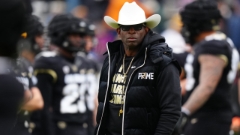
The Big 12 will also capitalize on the fanfare of Colorado bringing in Deion Sanders as their head football coach. The “Sanders experiment” with crazy transition of the Buffs roster in the transfer portal. It is all creating a lot of national attention. The only spring football game ESPN televised nationally this past spring was the University of Colorado.
That opening game of the season on FOX Biig Noon Kickoff with Colorado at TCU on Sept. 2 becomes an all Big 12 affair for publicity and perception purposes.
In Colorado, the Big 12 is getting back a member that left in 2011. Since departing the Big 12 they have played all sports in the Pac-12, but with limited success especially in the critical sport of football going 44-94 while members of that conference. Colorado first joined the Big Seven in 1948, which became the Big Eight in 1958 with Oklahoma State added. That league became the Big 12 in 1995 when Texas, Texas A&M, Texas Tech, and Baylor came on board from the Southwest Conference. TCU and West Virginia were added when Texas A&M and Colorado left in 2011. BYU, Cincinnati, Houston, and UCF officially became Big 12 members on July 1.
During their time in the Big Eight and Big 12 they won five conference championships, three they were tied for th top. In 1990 they won a share of college football’s national championship. They also earned 27 bowl bids as a Big 12 member including five trips to the Orange Bowl and three excursions to the Fiesta Bowl and one Cotton Bowl appearance. In their football history they have had 88 All-Americans named to at least one qualified All-American team. Rashaan Salaam won the Hesiman Trophy in 1994.
Colorado was attractive to Yormark as they bring the league another Mountain time zone team that will give the conference later inventory on football Saturdays for their television partners. Colorado left in 2011 with a message that they felt the school was a more natural fit for the Pac-12 and recruiting for their teams and exposing their fans to the Western and Pacific regions of the nation. A major part of the truth to their leaving like it was with Missouri, Texas A&M, and Nebraska was getting away from the University of Texas that tried to manipulate all decisions in the Big 12 to their suiting.
The Pac-12 and that conference’s failures to keep its’ top members, USC and UCLA, and then also negotiate a representative and profitable multimedia rights deal.
Yormark was clear about wanting Colorado and there is also consideration that Yormark and the Big 12 would consider Arizona, Arizona State, and Utah. Yormark went on record earlier this summer as telling members of the national media that he would like to keep the conference at 14 after this academic year which will end with Texas and Oklahoma leaving for the SEC.
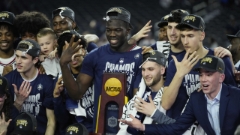
The other three “four corner” schools in the Pac-12 being obvious, our sources have told us the oher immediate school that Yormark would like to bring in is Connecticut. The Huskies admittedly don’t bring a strong prowess in football, but Yormark believes the program is on the way to becoming competitive for the Power Five level and could eventually be a team that would compete annually in the upper half of the Big 12. They bring in a highly-regarded basketball program, both men and women. The women have been dominant in recent years and the men just finished a national championship season last March.
Yormark knows that UConn will help carry some interest on the East Coast and in the important New York City market. The Huskies are also the unofficial home team for ESPN as both are located close to each other. Connecticut also provides some good regional competition for current members West Virginia and new member Cincinnati.

Colorado and the relationship with Oklahoma State goes deep. It is deepest with the fact that Oklahoma State’s greatest athletics tragedy took place after a basketball road contest in Boulder where Eddie Sutton’s team lost a Big 12 Conference game to the Buffs. On the way home, one of the three planes returning team members and support staff crashed on the flatirons of Colorado resulting in the death of 10 men, two pilots Denver Mills and Bjorn Fahlstrom, broadcaster Bill Teegins, broadcast engineer Kendal Durfey, assistant sports information for basketball Will Hancock, director of basketball operations Pat Noyes, student coach Jared Weiberg, trainer Brian Luinstra, and players Nate Fleming and Daniel Lawson.
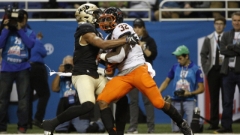
Colorado leads the all-time football series with Oklahoma State 26-20-1, but Oklahoma State has had the better run as of late. The two schools did meet in the 2016 Alamo Bowl in San Antonio as the Cowboys blitzed the Buff 38-8 in the Alamodome.
The last meeting between the two as conference rivals was in 2009 in Stillwater as Oklahoma State won 31-28. The Cowboys also won the season before in Boulder 30-17. That three game win streak is how the series will continue as Colorado returns to the league.
